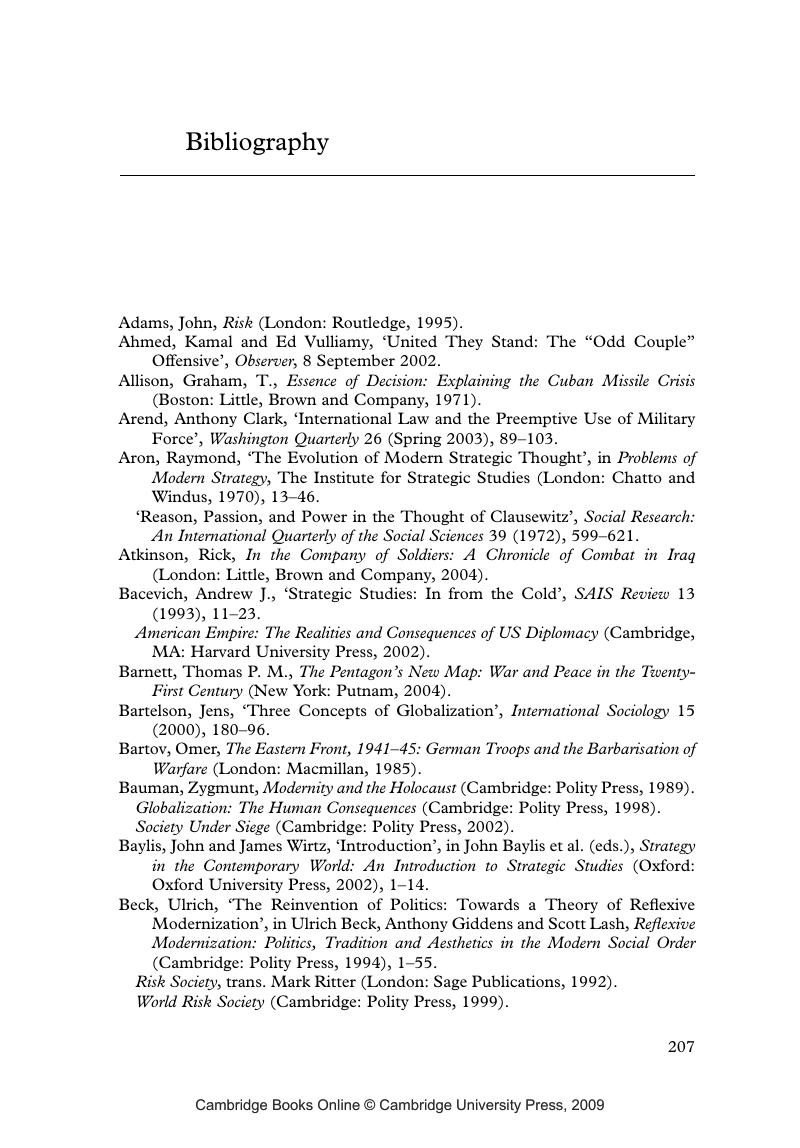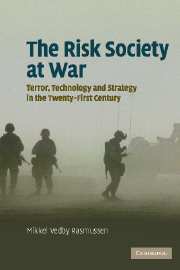Book contents
- Frontmatter
- Contents
- Acknowledgements
- 1 Introduction
- 2 Strategy, strategic studies and risk
- 3 Technology: the revolution in military affairs
- 4 Doctrines: precautionary principles and anticipatory defence
- 5 Agents: the UN approach and the terrorist approach to warfare
- 6 Conclusions
- Bibliography
- Index
- References
Bibliography
Published online by Cambridge University Press: 22 September 2009
- Frontmatter
- Contents
- Acknowledgements
- 1 Introduction
- 2 Strategy, strategic studies and risk
- 3 Technology: the revolution in military affairs
- 4 Doctrines: precautionary principles and anticipatory defence
- 5 Agents: the UN approach and the terrorist approach to warfare
- 6 Conclusions
- Bibliography
- Index
- References
Summary

- Type
- Chapter
- Information
- The Risk Society at WarTerror, Technology and Strategy in the Twenty-First Century, pp. 207 - 222Publisher: Cambridge University PressPrint publication year: 2006



